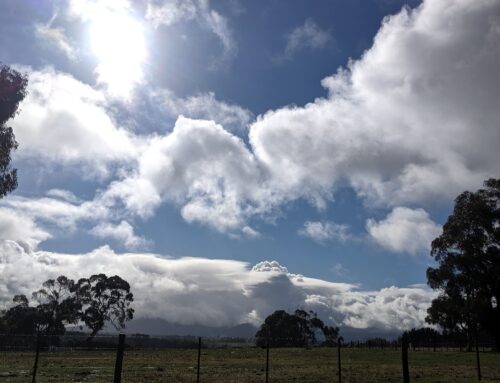I have always been fascinated by the task of having to re-learn things I thought I already knew. Clearly everyone has experienced this, so here are a few reflections on this mysterious and mostly frustrating aspect of life.
Most of us have decided at some stage to follow advice for a better way of living. Whether it is to “know” to: “Be the change you wish to see in the world”; or to “know” that: “You shouldn’t get angry and stressed as it doesn’t help you and is bad for your health.”
There are millions of words of advice that we are exposed to – especially on Facebook – advice that that we “know” is valuable and inspiring, yet why is it that “knowing” is not enough to integrate valuable advice into our lives in a permanent way? Why do we spend such a lot of our lives re-learning what we thought we already knew?
So what actually is “knowing”? Is it that we only really “know” something when we live it as a way of life – when it has become a practice rather than an idea?
I believe we can divide “knowing” into four stages, from thinking we know something, to it becoming a way of life.
Stage 1: Thinking we “know”.
This is the beginning and weakest stage of knowing. We know something intellectually and can feel good about ourselves for “knowing” it. This satisfaction in “knowing” at this stage is often what tricks our mind into telling us that we have done enough “work” on this thing so we forget about it and continue unconsciously with our lives. Nothing has changed.
Stage 2: Understanding.
We may study and think about the very thing that we “know” will help us to change. We may even reach a level of understanding. But this is still at the level of the conscious mind. Also. too often at this stage, the mind is telling us reasons for not carrying out the change we want, telling us that, “it’s not that important” or “it’s too hard” or “I haven’t got time” or something similar. We can become exhausted by these internal arguments and mostly nothing changes or if only for a short time.
Stage 3: Living it.
This is a higher stage of knowing that is only reached in a small percentage of changes in our lives. “Knowing” has evolved beyond the level of the mind but it still is mostly a mind component. Here we can fall into the trap of thinking that we know everything there is to know about changing. We can become experts in theory but fail in our practice. And so our capacity to completely change is actually compromised.
Stage 4: A way of life.
At this stage we no longer “think” about change because it has become a way of life. It is integrated into our way of living. This happens quite rarely and yet is essential for a successful life. When a change hasn’t reached Stage 4 then we will go through these stages again and again to re-learn what we thought we already knew.
As life is never static it is still possible to lose a “knowing” that was a way of life. The key is to notice when we are not doing something that we “know”. The most import thing about noticing to create positive change is that we just observe and not judge.
Network Care can assist us to “know” at a higher stage because it helps us to be more present and less “stuck in our head” by clearing phyisical and emotional blockages that have built up over the years.








Leave A Comment